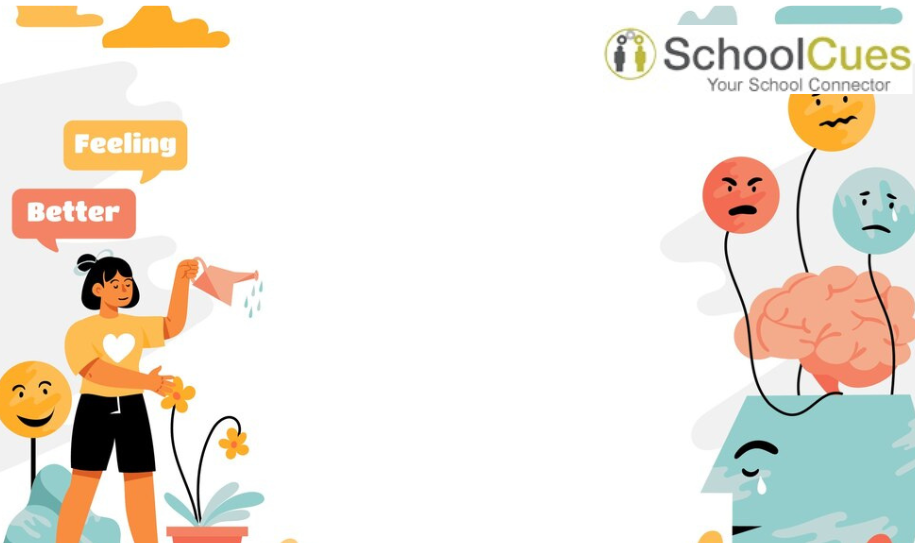The importance of Social and Emotional Learning (SEL) in a child’s education is widely acknowledged. SEL provides students with crucial life skills like understanding oneself, managing emotions, showing empathy, and communicating effectively with others. Integrating SEL into K-12 schools shapes well-rounded individuals and contributes significantly to a positive and inclusive learning environment. This article explores effective strategies to integrate Social and Emotional Learning across K-12 Schools.
School Management Systems Helps Integrate SEL into K-12 Schools
Integrating Social and Emotional Learning (SEL) into K-12 schools is greatly aided by a School Management System (SMS). This centralized platform empowers educators, parents, and administrators by streamlining the implementation of SEL programs. By accessing a wide range of resources and professional development modules focused on SEL, teachers can enhance their understanding and teaching methods. An SMS also enables personalized learning plans, allowing educators to tailor SEL education to meet the unique needs of each student in real-time.
Here are strategies to implement Social and Emotional Learning in K-12 Schools:
Professional Development for Educators
The involvement of educators is crucial in promoting SEL. To ensure successful implementation, it’s important to provide training to teachers and staff. This can be achieved through various means such as workshops, seminars, and continuous professional development programs. Utilizing dedicated School Management Software allows for easy organization and access to online courses, webinars, and other SEL resources. By equipping educators with comprehensive knowledge, they can effectively incorporate SEL principles into their daily interactions with students, thus achieving a seamless implementation.
Curriculum Integration
Integrating social and emotional learning (SEL) into the current curriculum guarantees a consistent approach to teaching these skills. An SMS can assist with curriculum planning by enabling educators to seamlessly incorporate SEL into various subjects. Through fostering collaboration, resource sharing, and lesson planning, the SMS establishes SEL as a vital component of the academic framework, reinforcing its significance across subject areas.
Personalized Learning Plans
It’s essential to educate students on the importance of identifying and naming their emotions. Activities like keeping a journal, participating in group conversations, and acting out various situations can help students effectively recognize and articulate their feelings. Utilizing School management software, educators can develop individualized learning strategies for students. These lesson plans should be customized as per their capabilities. These customized learning strategies will empower students to perform well academically as well as socially.
By gaining insight into each student’s emotional requirements and strengths, teachers can customize social and emotional learning programs accordingly. Developing emotional literacy empowers students to express their emotions, ultimately leading to a decrease in conflicts and misinterpretations.
Emotion Regulation Techniques
Incorporating mindfulness practices, deep breathing exercises, and relaxation techniques into their daily routines empowers students with effective strategies for handling their emotions. By integrating these techniques into their lives, they gain valuable tools for self-regulation when faced with difficult situations.
Building Healthy Relationships & Involving Parents
The significance of interpersonal skills is highlighted by SEL. Schools can organize group activities, teamwork exercises, and conflict resolution workshops to teach students effective communication, active listening, and problem-solving skills. These skills play a vital role in fostering positive relationships within and beyond the school setting.
Effective communication between parents and teachers is crucial for a child’s holistic development. SMS can be a valuable tool in providing consistent updates on a student’s social-emotional learning (SEL) progress, allowing parents to further nurture these skills within the home environment.
Tracking and Assessing SEL Skills
SEL programs should prioritize cultivating empathy by prompting students to contemplate various viewpoints. Engaging students in activities such as sharing stories, engaging in debates, and participating in cooperative learning exercises can help them develop the capacity to comprehend the emotions and perspectives of others, fostering a genuine sense of compassion and tolerance.
An SMS provides tools to track students’ SEL development. Through surveys, assessments, and behavioral tracking features, educators can gain insights into students’ emotional growth.
Continuous Assessment and Feedback
The ongoing evaluation of students’ social-emotional skills enables educators to monitor their development. Evaluations may take on various forms, including standardized tests, classroom observations, and peer assessments. By receiving feedback, educational institutions can enhance their social-emotional learning programs, guaranteeing their continued relevance and efficacy.
SchoolCues’ School Management System Helps Implement SEL into K-12 Schools
Incorporating Social and Emotional Learning into K-12 education is not just a trend but a necessity in preparing students for a complex, interconnected world. Using a School Management System, schools can successfully and comprehensively execute SEL initiatives.
SchoolCues is a low-cost school management system. From empowering teachers with the knowledge to personalized learning plans, transparent communication, data-driven insights, and timely interventions, Schoolcues can play a pivotal role in nurturing emotionally intelligent individuals. It has modules such as Admissions and Enrollment, Online Payment Solutions, Student Information System, Gradebook, Class Management, and Mobile Application to facilitate Communications. Schedule a free demo today!
